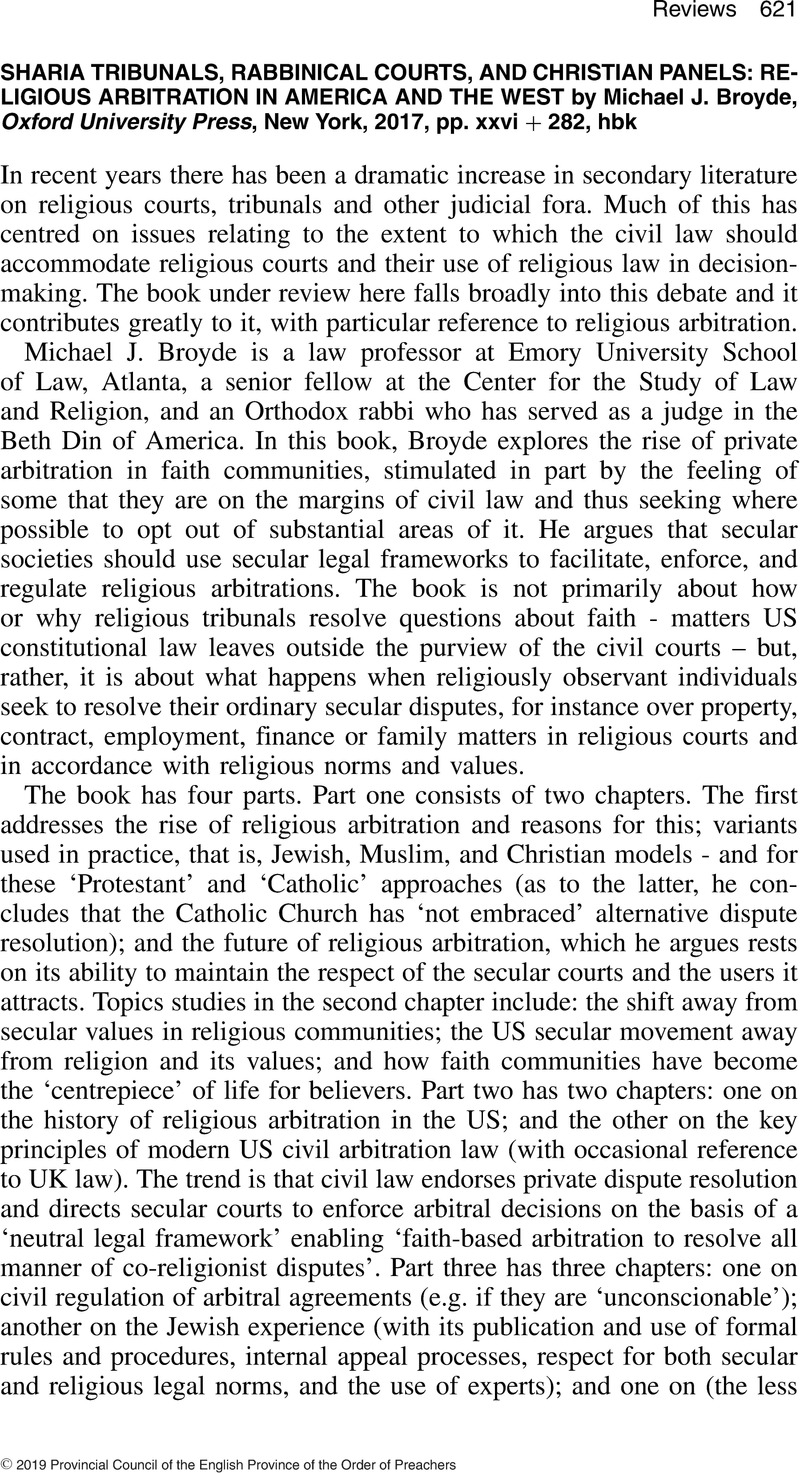No CrossRef data available.
Article contents
Sharia Tribunals, Rabbinical Courts, and Christian Panels: Religious Arbitration in America and the West by Michael J. Broyde, Oxford University Press, New York, 2017, pp. xxvi + 282, hbk
Review products
Sharia Tribunals, Rabbinical Courts, and Christian Panels: Religious Arbitration in America and the West by Michael J. Broyde, Oxford University Press, New York, 2017, pp. xxvi + 282, hbk
Published online by Cambridge University Press: 01 January 2024
Abstract
An abstract is not available for this content so a preview has been provided. Please use the Get access link above for information on how to access this content.

- Type
- Reviews
- Information
- Copyright
- Copyright © 2019 Provincial Council of the English Province of the Order of Preachers


